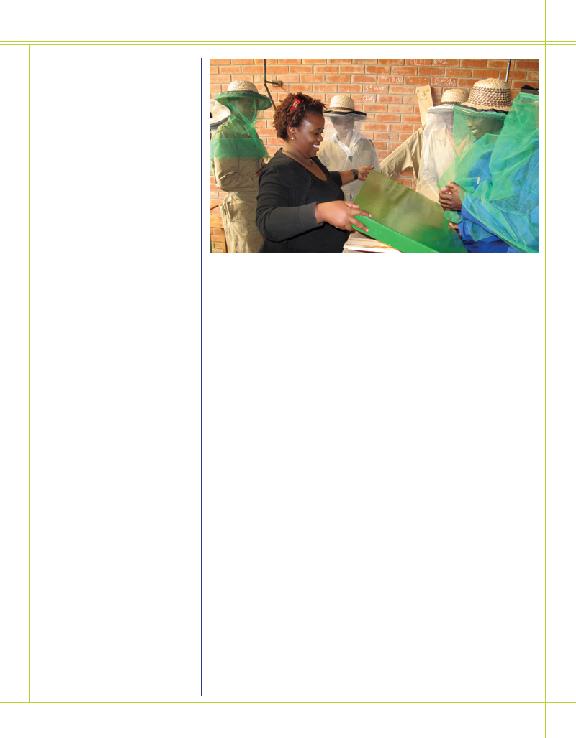
we are in there with the kids and we are
now providing them with food, extended
families are beginning to come back. There
is no pressure for them, and in fact, in some
cases, they are asking for food and what
not. It's a complex dynamic that we have to
deal with. And then of course that piece of
paper having some kind of proof that you
have either been doing people's laundry,
you know, something entrepreneurial to
make money. And so, once we do that
we bring them in. So for the first year,
we have designed a curriculum that we
call our security and stability curriculum.
And that's really aimed at providing those
basic needs. So, the kids get grocery every
month that is worth $50.00. Because most
of them are living in the homes that their
parents left for them, or it's a home that
belongs to grandparents, there are always
bills. We contribute some money toward
that; I think we encourage them to pay
$30.00 toward electricity and then $20
toward water and then in exchange for that,
they are expected to attend workshops
Monday through Thursday, typically from 9
a.m. till about 4:30 p.m. What we do with
that first year is, we teach everything from
community hygiene, personal hygiene, we
address HIV, STI's (sexually transmitted
infections), and living responsibly.
those risky behaviors, we start looking at
household management. We look at them
in terms of how they are handling their
home, and budgeting. The little income
that they make, how are they are stretching
that further especially now that Vanavevhu
is providing you with this grocery? What is
it that you are doing with the little money
that you are making? What goes along
with that is an intensive case management
program. Each of the households get two
home visits a month. And the first visit is
the physical assessment. We are looking
at the state of the home, clothes, the
siblings, and the living conditions. A lot
of our youth are very entrepreneurial;
they use some of the rooms in the home
to rent out to make money. But then, that
relationship is challenged because who is
if we have to, sort of assist them to evict the tenant and get a better tenant. We definitely
don't discourage them from any of their economic activities. We don't want them to get
fully dependent on Vanavevhu. So they continue to be landlords and that's the easiest way
to earn an income without interfering with the workshops that they have to attend.
providing psycho-social support and it helps us gauge just where the youth are, because
their parents died and they had to immediately start working and taking care of their
siblings. They never had that moment to mourn the death of their parents, number one,
and also to just take in the fact that they are now orphans and the stigma that comes with
it in any situation. So we provide support because giving them the basic needs, means
they no longer have that hassle survival mode. There is going to be more time to think. And
some kids react to it differently others regress completely. There might be depression that
sinks. And some of them just think, you know, "this is now my opportunity to really try and
make something of myself." Every kid is different and all of them might even go through
all those types of reactions throughout the year. So, we have this intensive relationship
with them where we are paying attention to those things and figuring out where we can
be most helpful as a support network. The youth also rely on each other because for the
first time for a lot of them, they are meeting youths just like themselves. They didn't even
realize that there were other kids like them who are now taking care of their siblings.
are bringing in the model that we have; we are bringing in ten families per year. We are
halfway into the third year and we just brought in our third cohort in April. That's the goal.
And in those five years we are providing them with that security, stability, and support.
They are learning entrepreneurship. A formal entrepreneurship curriculum in the second
year and then in the third year they are being introduced to the businesses. So they are
learning beekeeping, they are learning candle-making, they are learning gardening. Now
these things, because we are in the two and half years of our operations, these things are
still fairly new for staff and youths. It's going to look different for the kids that come in the
fourth year, for example. So right now, every group, even though some might, this might
be their first year, and the others their third year in Vanavevhu, contributes to some aspect.
In the morning, there are people in the garden together as a group, then they separate in
the afternoon, and they get taught their seminars according to what they are in. That's how
it works. If we go back and forth in terms of the length of the program, just because for